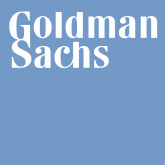Goldman Sachs CEO Lloyd Blankfein Named Financial Times Person Of The Year
Huffington Post (blog)
Editor's Note: So much for my admiration for the Financial Times
Vox Verax: Goldman Sachs: The Grinch who stole Christmas?
By Leigh Pomeroy
Master of risk who did God's work for Goldman Sachs but won it little love
Financial Times
Editor's Note: As you can see, there was not much news about GS on Christmas Day. It was a great day for everyone to take a break from all that is happening and I hope everyone - including all those at Goldman Sachs - did just that.
As we near the end of 2009 we hopefully can look back at all that had happened and turn that knowledge - now called history - into positive action for change in the future and to right the wrongs that have occurred.


![Reblog this post [with Zemanta]](http://img.zemanta.com/reblog_e.png?x-id=bd5c0087-f9ed-4fd9-9ba3-e87244eafc00)
1 COMMENTS:
Sunday, December 27, 2009
2009: The Year Wall Street Bounced Back and Main Street Got Shafted
In September 2008, as the worst of the financial crisis engulfed Wall Street, George W. Bush issued a warning: "This sucker could go down." Around the same time, as Congress hashed out a bailout bill, New Hampshire Sen. Judd Gregg, the leading Republican negotiator of the bill, warned that "if we do not do this, the trauma, the chaos and the disruption to everyday Americans' lives will be overwhelming, and that's a price we can't afford to risk paying."
In less than a year, Wall Street was back. The five largest remaining banks are today larger, their executives and traders richer, their strategies of placing large bets with other people's money no less bold than before the meltdown. The possibility of new regulations emanating from Congress has barely inhibited the Street's exuberance.
But if 2009 has proved anything, it's that the bailout of Wall Street didn't trickle down to Main Street. Mortgage delinquencies continue to rise. Small businesses can't get credit. And people everywhere, it seems, are worried about losing their jobs. Wall Street is the only place where money is flowing and pay is escalating. Top executives and traders on the Street will soon be splitting about $25 billion in bonuses (despite Goldman Sachs' decision, made with an eye toward public relations, to defer bonuses for its 30 top players).
The year 2009 will be remembered as the year when Main Street got hit hard. Don't expect 2010 to be much better -- that is, if you live in the real economy. The administration is telling Americans that jobs will return next year, and we'll be in a recovery. I hope they're right. But I doubt it. Too many Americans have lost their jobs, incomes, homes and savings. That means most of us won't have the purchasing power to buy nearly all the goods and services the economy is capable of producing. And without enough demand, the economy can't get out of the doldrums.
http://tinyurl.com/ygdljx4
Post a Comment